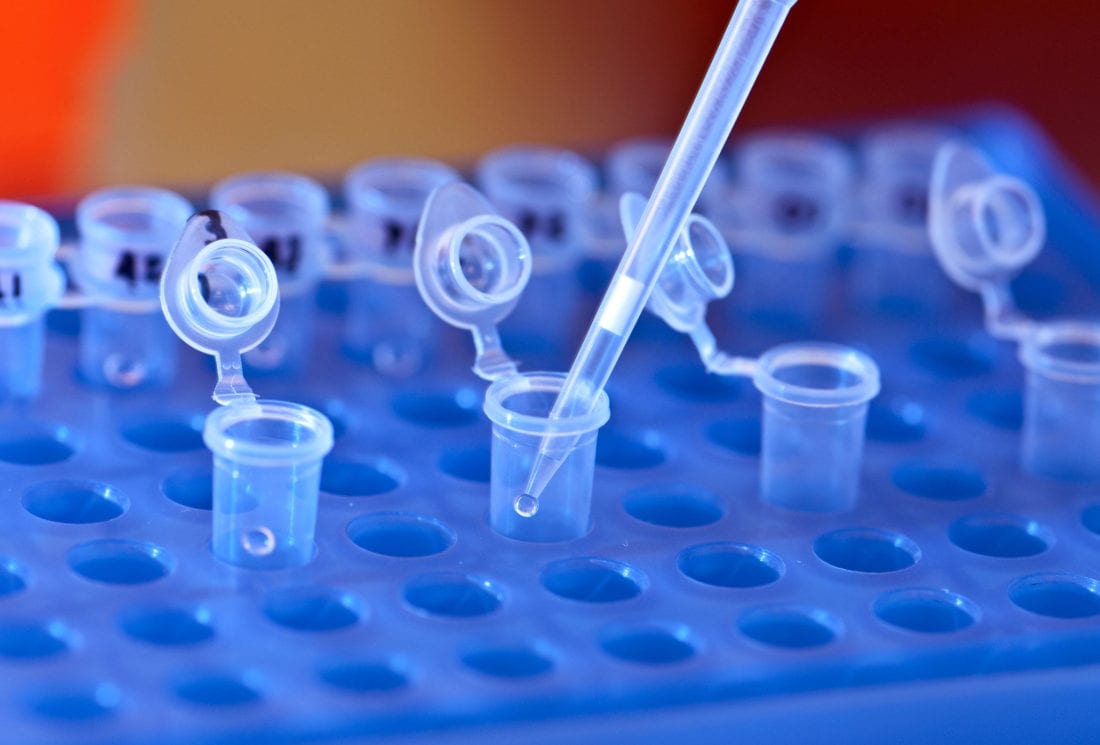The life sciences have made a strong showing in the Greater Philadelphia region this year, as local companies raked in a record $777 million in venture capital in the first half of 2021 alone.
Add it to the tally: A University of Pennsylvania spinout has raised a $50 million Series A to advance its gene editing technology.
iECURE’s tech, developed in the lab of Dr. James Wilson within Penn’s R&D-focused Gene Therapy Program, deals with the “mutation-agnostic in vivo insertion of healthy copies of disease-causing genes,” the company said in a press release. Its initial focus is on liver disorders.
The round was led by Versant Ventures and OrbiMed Advisors. iECURE works in partnership with the Gene Therapy Program, and the university and Wilson both hold equity in the company.
“Through our foundational collaboration with Penn, we are gaining access to a comprehensive, liver-focused, in vivo gene editing program that Dr. Wilson and his team have been developing in his labs for several years,” iECURE CEO Joseph Truitt said. “We are excited to partner with Penn to develop potentially groundbreaking treatments for patients suffering from debilitating disorders of the liver.”
Truitt told the Philadelphia Business Journal that iECURE is hiring, and that he expects the team to expand to between 30 and 50 employees by the end of summer 2022.
So, what is gene editing?
Dr. Eric Kmiec, the director of the ChristianaCare Gene Editing Institute in Newark, Delaware, told Technical.ly in December that gene editing is a form of genetic medicine with the goal of correcting DNA mutations that lead to inherited disorders or cancer. Diseases such as sickle cell disease, cystic fibrosis and Pompe’s disease have been the early targets for clinical trials. In particular, the sickle cell disease trials going on have shown great promise.
It can also be looked at as a “genetic spellchecker,” he said: Chromosomes are like the words in a sentence, and gene editing can help correct those words to make that sentence coherent, or in this case, healthy without the mutant or misspelled gene in the chromosome.
In relevant recent gene editing news, Kmiec is part of a team that developed CRISPR in a Box in 2020 as a laboratory exercise for high school and college students to educate them about the gene editing therapy. The team also recently launched the “CRISPR in the Classroom” series, a teaching tool to help spread information about the CRISPR and its impact on sickle cell disease. You can watch it on DETVch.com.
Join the conversation!
Find news, events, jobs and people who share your interests on Technical.ly's open community Slack

Philly daily roundup: East Market coworking; Temple's $2.5M engineering donation; WITS spring summit

Philly daily roundup: Jason Bannon leaves Ben Franklin; $26M for narcolepsy treatment; Philly Tech Calendar turns one

Philly daily roundup: Closed hospital into tech hub; Pew State of the City; PHL Open for Business


